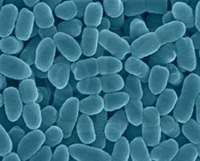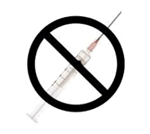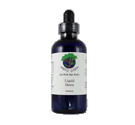 Arthropod/Vector
Bacteria
Chemicals
Fungus /Mold
/ Yeast Metals Parasites Virus Other Arthropod/Vector
Bacteria
Chemicals
Fungus /Mold
/ Yeast Metals Parasites Virus Other
|
Bordatella
Symptoms are initially mild, then develop into severe coughing fits which produce the namesake high-pitched "whoop" sound in infected babies and children when they inhale air after coughing. The coughing stage lasts for approximately six weeks before subsiding. In some countries, this disease is called the 100 days' cough or cough of 100 days. The classic symptoms of pertussis are a paroxysmal cough, inspiratory whoop, and vomiting after coughing. The cough from pertussis has been documented to cause subconjunctival hemorrhages, rib fractures, urinary incontinence, hernias, post-cough fainting, and vertebral artery dissection. The incubation period is typically seven to ten days in infants or young children, after which there are usually mild respiratory symptoms, mild coughing, sneezing, or runny nose. This is known as the catarrhal stage. After one to two weeks, the coughing typically develops into uncontrollable fits, each with five to ten forceful coughs, followed by a high-pitched "whoop" sound in younger children, or a gasping sound in older children, as the patient struggles to breathe in afterwards (paroxysmal stage). Fits can occur out of nowhere or can be triggered by yawning, stretching, laughing, eating or yelling. They usually occur in groups, with multiple episodes every hour around the clock. Transmission occurs by direct contact, or via respiratory aerosol droplets, or fomites. Bacteria initially adhere to ciliated epithelial cells in the nasopharynx. The initial catarrhal phase of infection produces symptoms similar to those of the common cold and during this period, large numbers of bacteria can be recovered from the pharynx. Next the bacteria proliferate and spread further into the respiratory tract, where the secretion of toxins causes ciliostasis and facilitates the entry of bacteria to tracheal/bronchial ciliated cells. B. bronchiseptica causes several diseases in other mammals, including kennel cough and atrophic rhinitis in dogs and pigs. B. bronchiseptica rarely infects healthy humans though disease in immunocompromised patients has been reported. Other members of the genus cause similar diseases in other mammals, and in birds (B. hinzii, B. avium).
This Quantum Formula antidotes the various species in the Bordatella genus, as well as pertussis toxin[subunit2,3,4,5], protein adhesions [filamentous haemaglutinin, pertactin, fimbriae, AB5-type exotoxin, ciliostasis], tracheal cytotoxin peptidoglycan, adenylate cyclase toxin, adenosine triphosphate, cyclic adenosine monophosphate, calcium influx, phosphorylating and flagellin gene. |
|




